RCEP overview
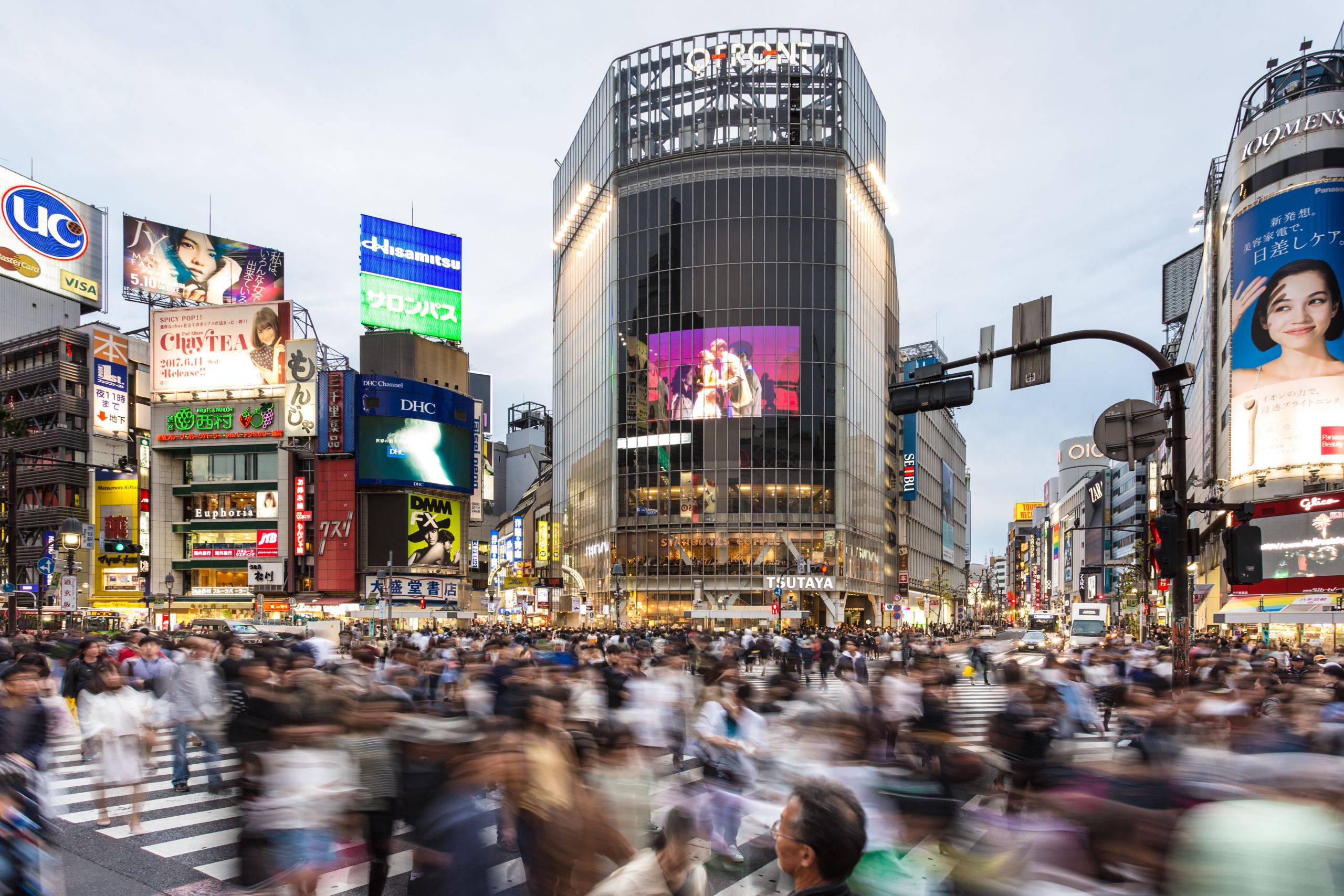

Overview
The Regional Comprehensive Economic Partnership (RCEP) anchors New Zealand in a region that is the engine room of the global economy.
The 15 RCEP economies are home to almost a third of the world’s population, include 7 of our top 10 trading partners, take over half New Zealand’s total exports and provide more than half our direct foreign investment.
RCEP deepens our trade and economic connections in the Indo-Pacific. The Agreement will help ensure New Zealand is in the best possible position to seize new opportunities for exports and investment. RCEP is projected to add $186 billion to the world economy and increase New Zealand’s GDP by around $2.0 billion.
The Agreement entered into force on 1 January 2022, including for New Zealand. Leaders and Ministers from 15 RCEP economies announced the full conclusion of negotiations for RCEP and signed the agreement at a Summit on 15 November 2020.
India withdrew from these negotiations in November 2019. There is a fast track accession process in place should India wish to re-join RCEP in future.
Which countries are in RCEP?
Fifteen countries signed RCEP in 2020. These countries include the 10 members of the Association of Southeast Asian Nations (ASEAN) :
- Brunei-Darussalam
- Cambodia
- Indonesia
- Laos
- Malaysia
- Myanmar
- Philippines
- Singapore
- Thailand
- Viet Nam
Plus five regional countries with which ASEAN has free trade agreements:
- Australia
- China
- Japan
- South Korea
- New Zealand
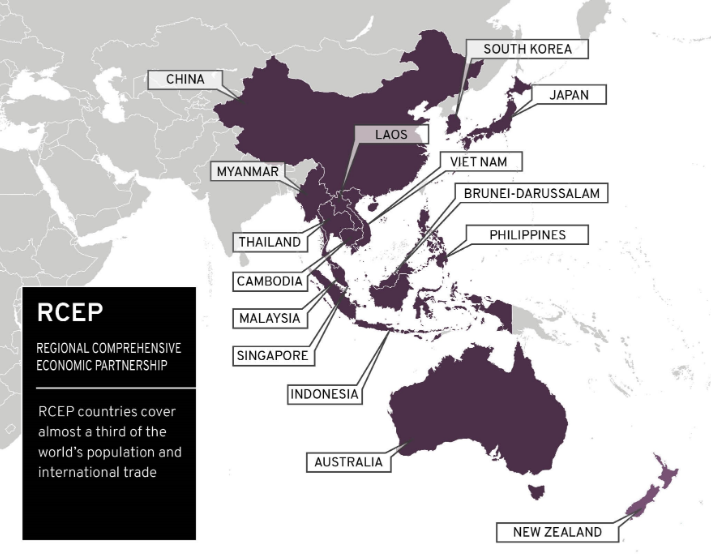
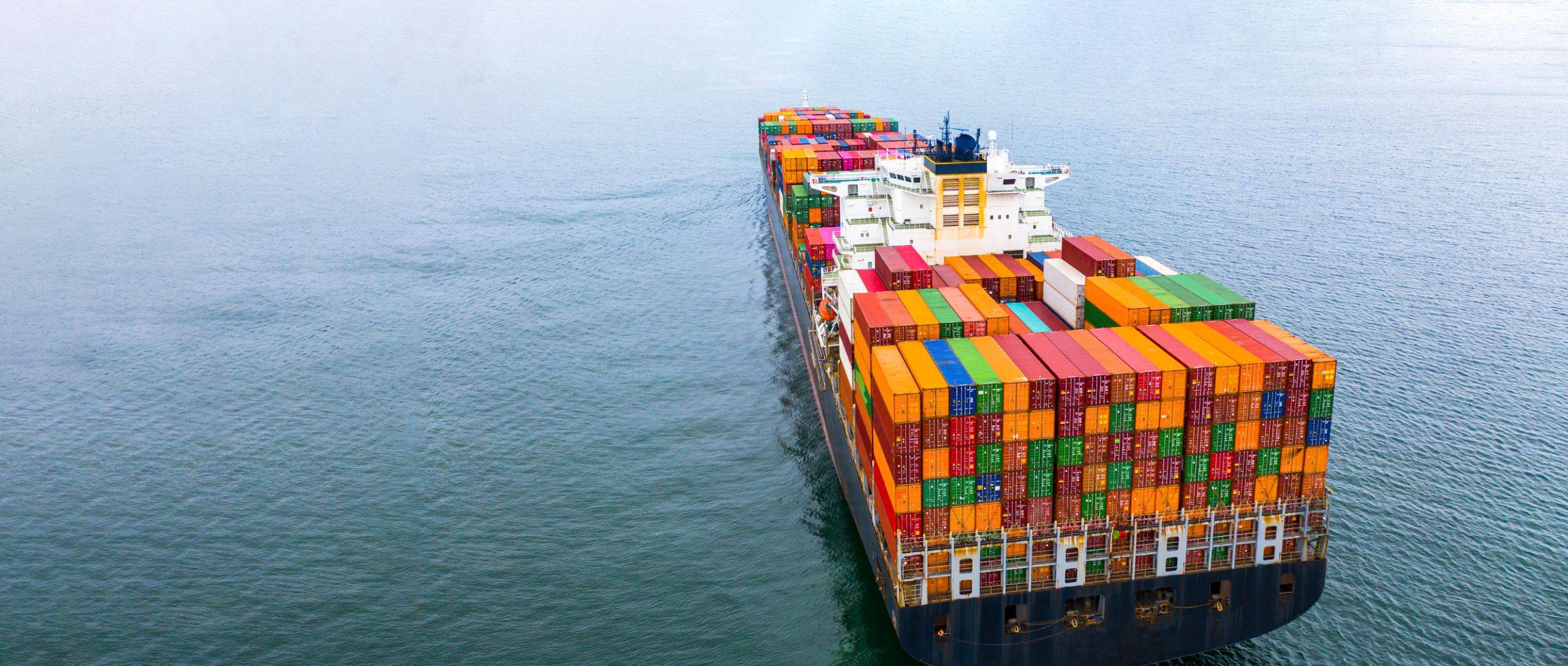

Key statistics
The 15 countries within RCEP represent:
- a population of 2.3 billion, 30% of the world's population
- five RCEP countries (Australia, China, Indonesia, Japan and South Korea) are members of the Group of 20 (G20), the international forum for global economic cooperation among the world's 20 largest economies
- seven of New Zealand's top 10 trading partners based on two-way trade (China, Australia, Japan, Singapore, South Korea, Thailand and Malaysia).
Collectively in the year to December 2024:
- RCEP took 53% of New Zealand's total exports, representing 57% of New Zealand’s goods exports (worth $40.5 billion) and 43% of New Zealand’s services exports (worth $13.0 billion).
RCEP highlights
New Zealand exporters grapple with a complex web of different rules when they trade in the RCEP region. This agreement delivers a single set of rules with RCEP partners, making trade simpler and reducing compliance costs for exporters.
RCEP addresses non-tariff barriers to trade in goods, reducing the time exporters spend waiting for goods to clear customs, and helps create opportunities for New Zealand exporters to get their products and services into regional value chains.
New Zealand has existing free trade agreements with all the RCEP countries, which have already eliminated tariffs on most New Zealand exports. However RCEP will further reduce tariff barriers for New Zealand exporters to Indonesia on some food and manufactured goods.
RCEP provides New Zealand service suppliers and investors with legal protections that guarantee market access and treatment equivalent to that given to local and foreign competitors, unless subject to country-specific exceptions.
RCEP delivers improved market access for New Zealand services exporters and investors in some RCEP markets that go beyond existing FTAs. Under RCEP, New Zealand services exporters and investors will, for the first time, benefit from market access commitments from China and ASEAN countries that are not party to the CPTPP (such as Indonesia and the Philippines).
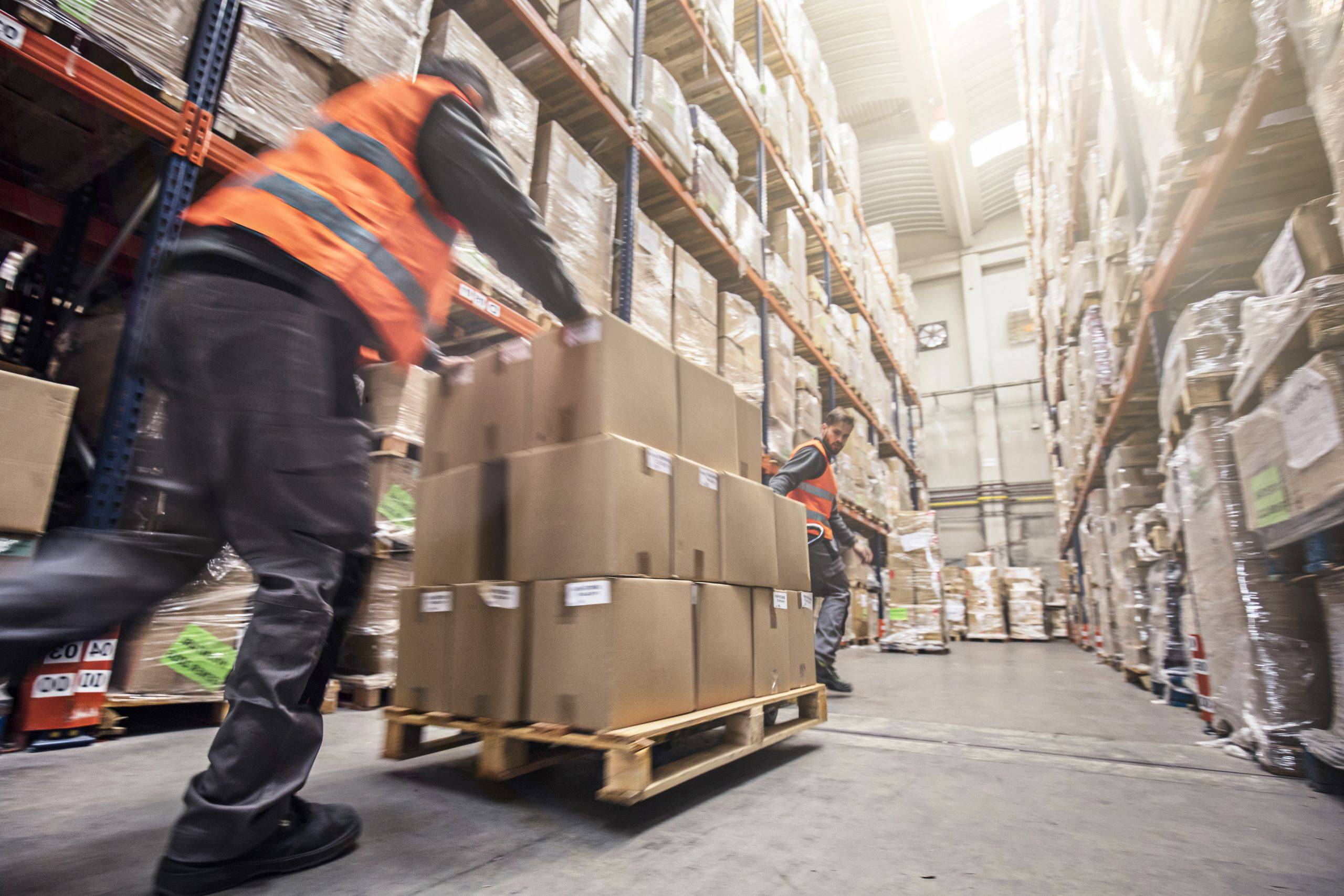

RCEP delivers more certainty for New Zealand companies doing business in the region, and helps level the playing field with competitors. RCEP’s competition rules require the establishment and enforcement of competition regimes in the region, including the adoption of measures to prohibit anticompetitive activities.
Find out more in Key Outcomes.
RCEP includes commitments in several areas that are new for some RCEP parties and will modernise New Zealand’s trading relationships with these economies in line with our best practice from recent FTAs.
Find out more in Modernising our trading relationships.
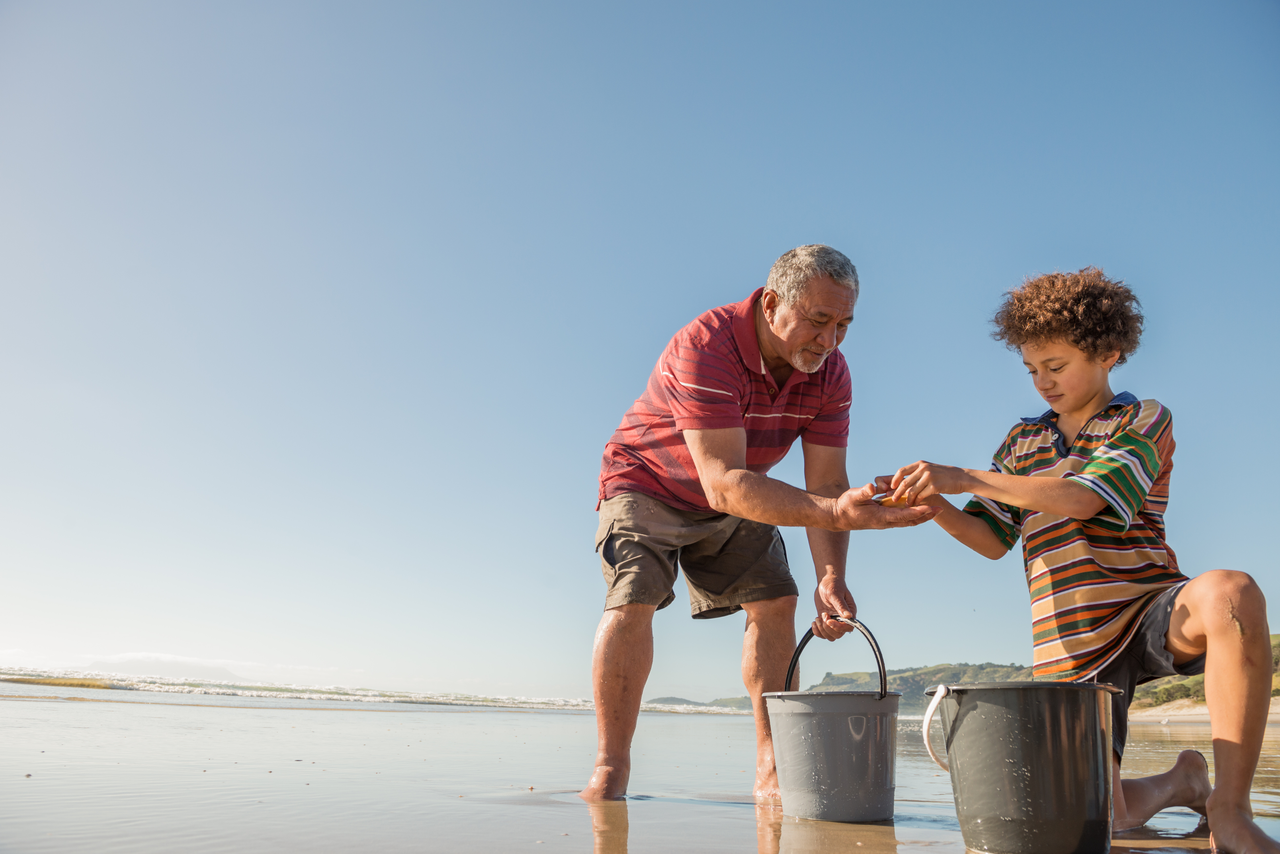
Protecting rights
RCEP preserves the New Zealand Government’s inherent right to regulate in the public interest and contains specific protections in a range of policy areas, including for the Treaty of Waitangi.
As with all of New Zealand’s contemporary trade agreements, RCEP includes a specific provision preserving the pre-eminence of the Treaty of Waitangi in New Zealand. Nothing in RCEP prevents the Crown from meeting its obligations to Māori and New Zealand’s interpretation of the Treaty of Waitangi will not be subject to dispute settlement.
Find out more in Māori Interests.

Key milestones
RCEP came into force on 1 January 2022, including for New Zealand.
RCEP was launched in November 2012 as an ASEAN initiative.
RCEP countries agreed to deliver an agreement that is modern, comprehensive, high-quality and mutually beneficial. Leaders endorsed these Guiding Principles and Objectives (‘Guiding Principles’) for the RCEP negotiations when launched.
From 2012, RCEP countries participated in 31 full negotiating rounds, a number of Ministerial meetings and three Leaders Summits, which culminated in the full conclusion of negotiations and signature of the agreement on 15 November 2020.

Contact us
We are keen to hear your views on RCEP and answer any questions you may have.
Email us at exports@mfat.govt.nz or call the Ministry of Foreign Affairs and Trade Exporter Helpline 0800 824 605.
All enquiries are logged into our helpdesk system and are acknowledged immediately. Detailed responses are provided within two working days.
FTA Implementation Unit
Ministry of Foreign Affairs and Trade
Private Bag 18901
Wellington
